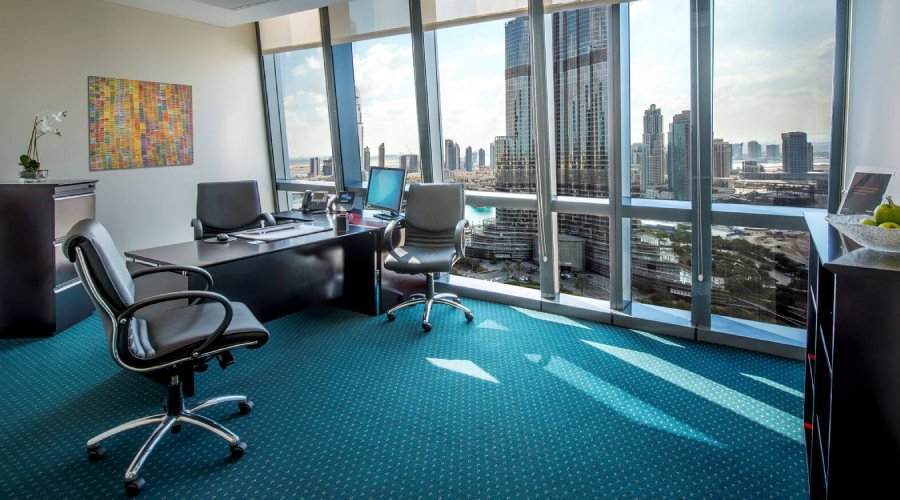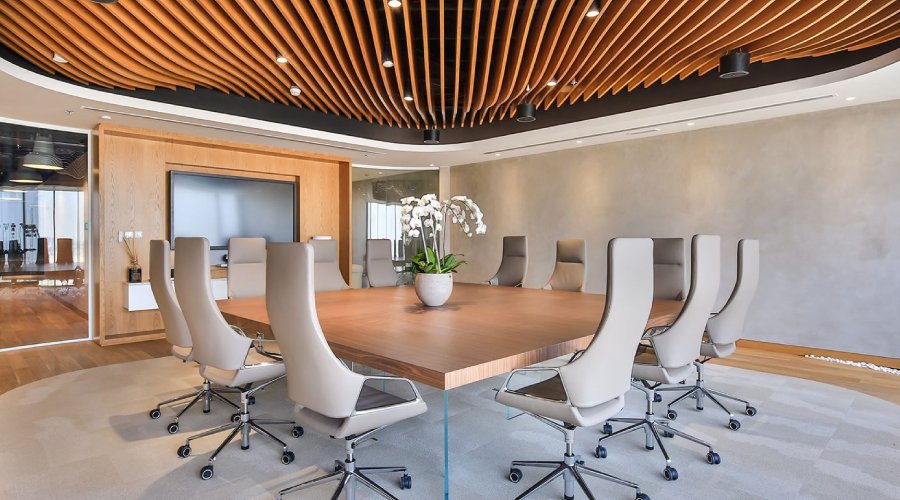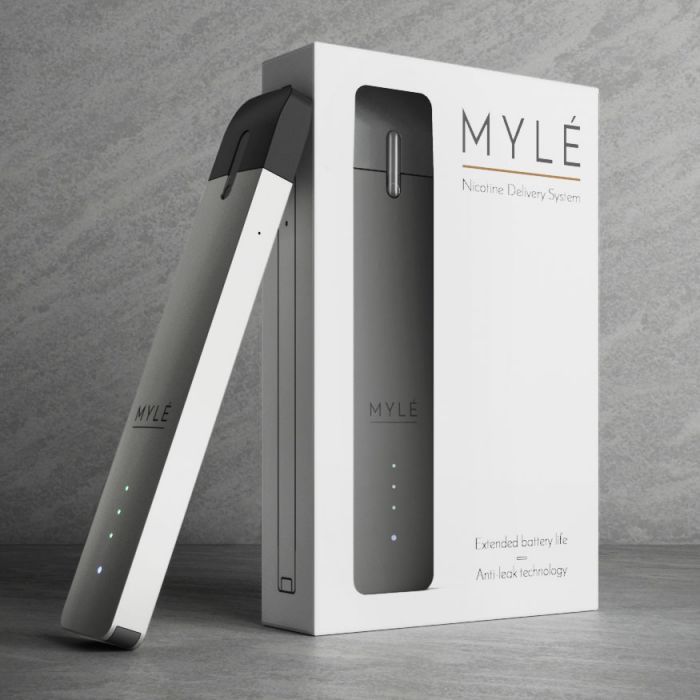In the dynamic business environment of Dubai, choosing between renting and buying office space is a critical decision that impacts a company’s financial standing and strategic flexibility. This analysis provides a comprehensive examination of the financial and strategic considerations involved in both options, helping businesses make informed decisions tailored to their unique circumstances.
Page Content
Initial Financial Considerations
The initial cost of entering a rental agreement or purchasing property can vary significantly. Renting typically requires less capital upfront, involving costs such as security deposits, which are usually equivalent to a few months’ rent, and possible service charges. In contrast, purchasing office space in Dubai demands a substantial initial investment, including a down payment, which can range from 25% to 50% of the property’s price for commercial mortgages, and additional purchasing costs like registration fees and legal expenses.
Long-Term Financial Implications
Long-term financial commitments vary greatly between renting and buying. Owners of office spaces in Dubai face ongoing expenses such as maintenance, property insurance, and annual property taxes, although these costs can be mitigated by the potential appreciation in property value. Renters are generally shielded from most maintenance costs, as these are typically the landlord’s responsibility. However, they face periodic rent increases and service charges, which can escalate, particularly in high-demand areas.

Pros and Cons of Buying Office Space
Benefits:
- Asset Appreciation: Real estate in Dubai has a history of appreciation, providing significant returns on investment over the long term.
- Control and Stability: Owning property gives businesses full control over their space, allowing for customized branding and modifications without landlord restrictions. It also eliminates the uncertainty of lease expirations and potential relocations.
Drawbacks:
- Upfront Capital: The initial cost is considerably higher than renting, which might restrict cash flow, especially for startups and small businesses.
- Maintenance Obligations: Property owners are responsible for all maintenance, which can be unpredictable and costly.
- Inflexibility: Selling commercial property can be time-consuming, reducing flexibility if the business needs to relocate quickly.
Pros and Cons of Renting Office Space
Benefits:
- Lower Initial Investment: Renting office space allows businesses to preserve capital for operational expenses and other investments.
- Flexibility: Leases typically last for 1-3 years, offering businesses the opportunity to relocate as needed without the burden of selling property.
- Inclusivity of Expenses: Rental agreements often include maintenance and utilities, reducing the number of direct responsibilities for the business.
Drawbacks:
- No Equity: Rent payments contribute to the landlord’s equity, not the tenant’s assets.
- Annual Increases: Tenants may face annual rent increases, which can become significant over time, especially in sought-after locations.
- Operational Restrictions: Leases may have clauses that restrict business operations or prevent modifications to the office space.

Strategic Considerations
Choosing the right option depends heavily on a business’s strategic goals. Companies planning rapid expansion may benefit from the flexibility of renting, whereas those established in stable markets could find the long-term financial benefits of owning more advantageous. The choice of location within Dubai also plays a crucial role, as areas like Downtown Dubai or the Dubai International Financial Centre have different profiles in terms of cost, clientele, and prestige.
Tax Considerations and Incentives
Dubai does not impose income taxes on businesses, which simplifies the financial analysis. However, property buyers can face other levies, such as a one-time registration fee of 4% of the property value. Conversely, rental contracts may include service fees and management costs, but these do not typically carry tax implications.
Making the Decision: Renting vs. Buying
Businesses must carefully weigh their financial stability, growth projections, and market conditions. Financial advisors and real estate experts can provide valuable insights based on current market data and projected trends. Tools like cost-benefit analysis calculators specifically tailored for Dubai’s market can assist in this evaluation, considering all potential costs and benefits.
Conclusion
The decision between buying or getting office space for rent in Dubai from SORP involves a complex array of financial calculations and strategic considerations. Each business must assess its current needs, future goals, and financial capabilities to determine which option aligns best with its long-term objectives. Whether opting to rent or buy, the choice should support the company’s overall growth strategy and enhance its operational effectiveness in Dubai’s competitive marketplace.
For further guidance, businesses should consult the Dubai Land Department for up-to-date information on real estate regulations and market trends that could influence their decision.



